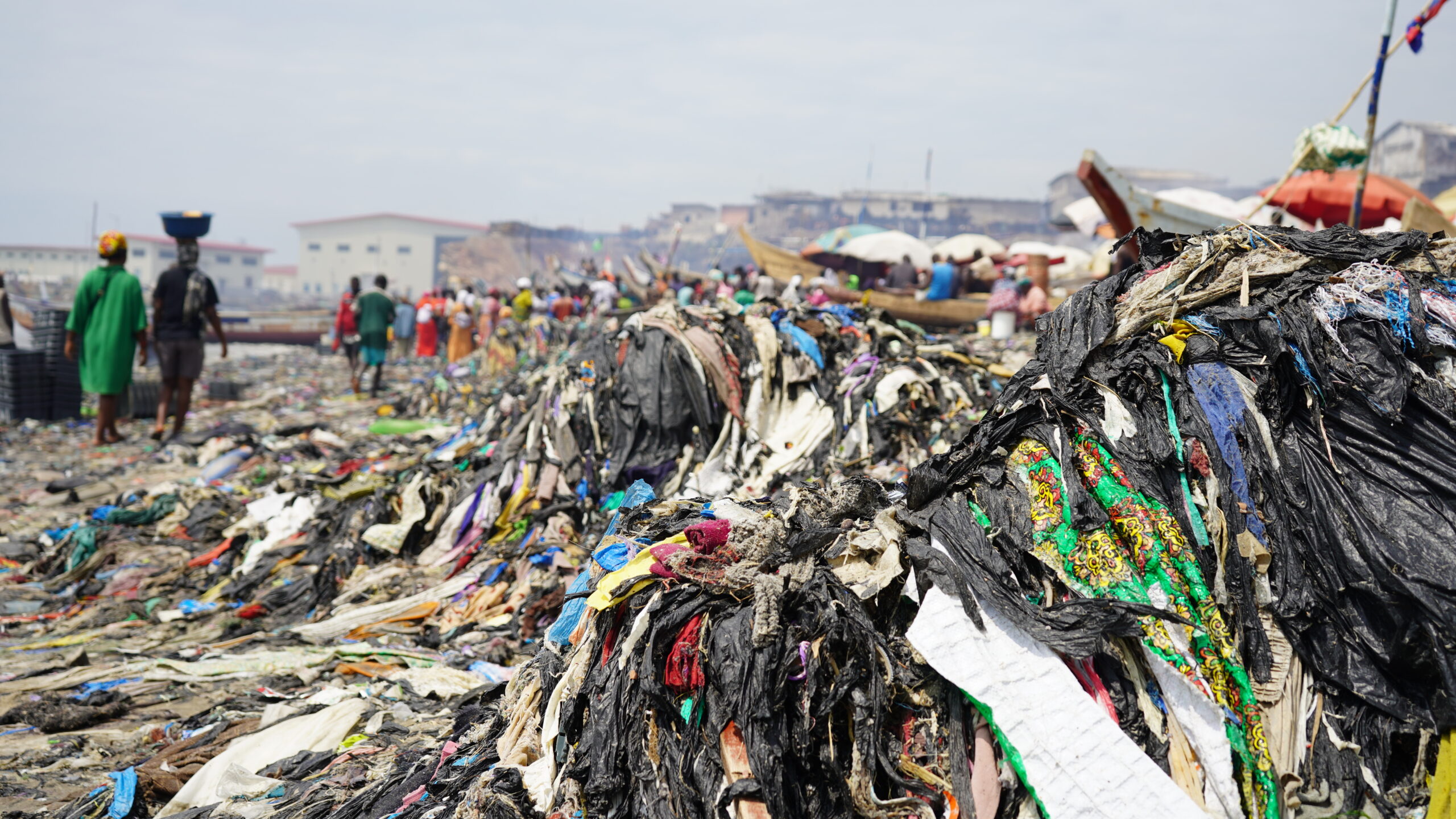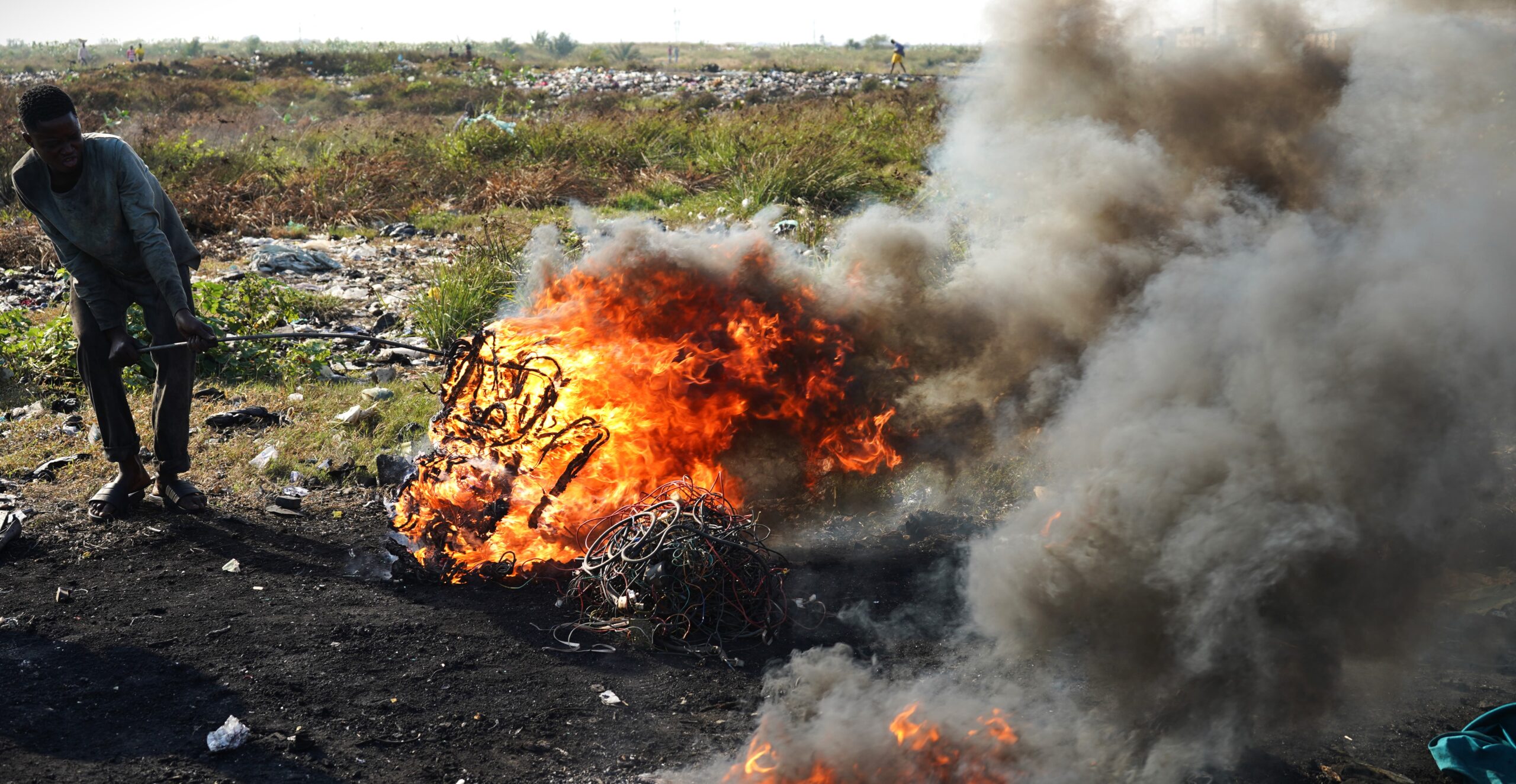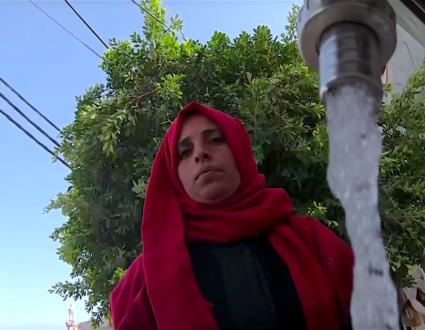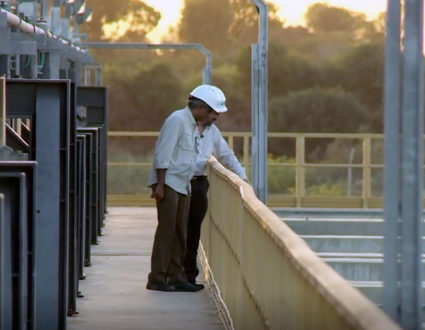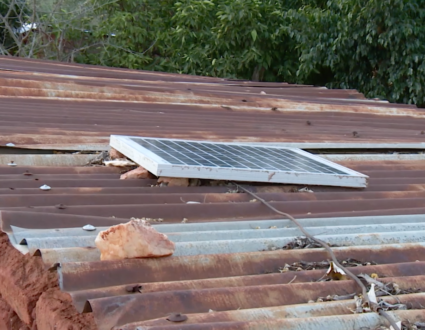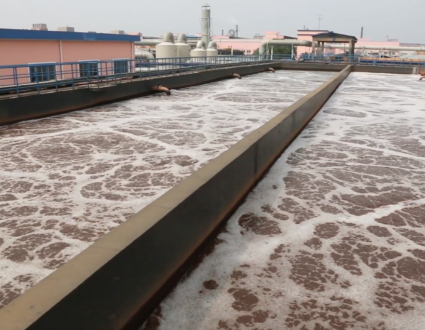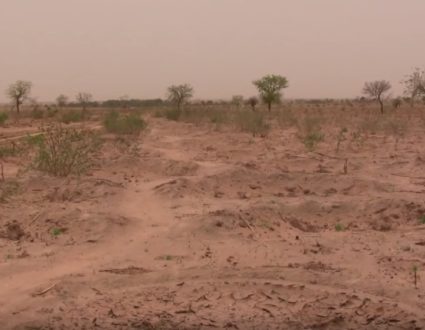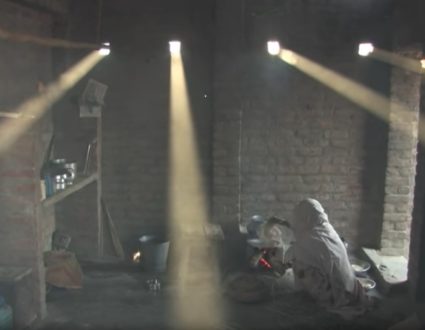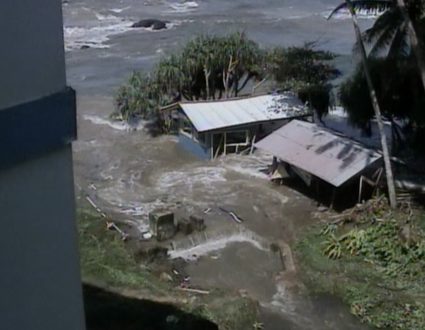Amna Nawaz:
A major issue in Britain’s general election this week is the cost of living crisis, fueled by spiking inflation after Russia’s invasion of Ukraine. That, in turn, has put pressure on the country’s pledge written into law to become carbon-neutral by 2050.
Fred de Sam Lazaro reports from Aberdeen, Scotland in partnership with the Pulitzer Center.
Fred de Sam Lazaro:
For much of its history, Aberdeen was a small port with mostly fishing vessels that anchored the local economy.
Narrator:
Aberdeen on the east coast of Scotland.
Fred de Sam Lazaro:
Then, 50 years ago, amid a global energy crisis, black gold was discovered in the North Sea.
Narrator:
Liquid gold. Call it what you like. Britain now has oil.
Fred de Sam Lazaro:
Aberdeen became the anchor of Britain’s oil industry. Hundreds of offshore rigs began to reel in oil, gas and money.
But with reserves dwindling in a global climate crisis, the United Kingdom set a goal to reach net zero by 2050, something highlighted at the COP 26 climate conference in Glasgow, Scotland, which itself set a 2045 net zero target.
The city of Aberdeen, self-described as Europe’s oil capital, pledged to become its energy capital.
Maggie McGinlay, Energy Transition Zone:
It’s almost like another Industrial Revolution.
Fred de Sam Lazaro:
Maggie McGinlay leads a government-funded nonprofit called the Energy Transition Zone in Aberdeen. It’s intended as an incubator for new companies in emerging technologies, like this experimental platform for floating wind turbines.
Maggie McGinlay:
We very much see it as a managed transition that’s more focused on energy production from offshore wind, from hydrogen, and then utilizing carbon capture.
Fred de Sam Lazaro:
Half-a-mile away at the Technical North East Scotland College, students strain to work on oil rigs and offshore wind farms alike.
T.J. Priestly, Student:
I believe there’s a lot of life left within oil and gas in the North Sea.
Fred de Sam Lazaro:
T.J. Priestly and classmate Chloe MacIntosh said they liked the adventure of working on remote platforms miles out to sea for weeks at a time, and the perks.
Chloe MacIntosh, Student:
That’s why we’re paid the money that we are, because…it’s
Fred de Sam Lazaro:
It’s good, isn’t it?
Chloe MacIntosh:
Yes, it’s good money that we go into.
Brodie MacGruer is a renewables tech student.
Brodie MacGruer, Student:
I have always wanted to go off onto the rigs and do mechanical work. And since renewables is the next upcoming thing, and it’s only going to get bigger, I thought this would be the best thing.
Paul Balfour, Instructor, North East Scotland College:
It’s a really exciting place to be a young person in the northeast of Scotland right now.
Fred de Sam Lazaro:
Instructor Paul Balfour says, for many students, the choice of oil and gas or renewables is not hard.
Paul Balfour:
The skills are really transferable. Traditional oil and gas companies still exist. They need employees. Offshore wind and wave power, they’re looking for employees as well.
John Underhill, University of Aberdeen: Three-quarters of our total energy needs still come from oil and gas. So the starting point on our journey to decarbonize is already a challenging one.
Fred de Sam Lazaro:
John Underhill directs the Center for Energy Transition at the University of Aberdeen. He says that decarbonizing journey has been subject to detours, thanks to global developments and politics closer to home.
John Underhill:
In the period since COP 26, there’s been a seismic event, if you like. And with events in Ukraine, we now see that energy security and affordability have come right up the political agenda, perhaps at the — arguably at the expense of environmental sustainability and climate compatibility.
Fred de Sam Lazaro:
Gas prices and home heating costs and inflation overall soared after the invasion, creating a cost of living crisis.
Britain’s government called for redoubled efforts to drill more in the North Sea in pursuit of energy security. But to critics, this was a step backwards, evidence more of the influence of oil companies than any security or climate concerns.
Erik Dalhuijsen, Aberdeen Climate Action:
The problem is, with the same company making his profit out of producing fossil fuels, at the same time, controlling the conversation about how quickly renewables are going to expand.
Fred de Sam Lazaro:
Erik Dalhuijsen, who once worked in the petroleum industry, now runs an environmental group called Aberdeen Climate Action.
Erik Dalhuijsen:
We need a different mind-set, a different approach to actually do the things that bring these emissions down, that take our energy demand down.
Fred de Sam Lazaro:
Very little has been invested in lowering energy demand, he says, heat pumps and insulation, for example, retrofitting Britain’s aging buildings and housing stock, which account for as much as a fourth of all its carbon emissions.
Erik Dalhuijsen:
The North East Scotland College doesn’t have a retrofit department yet, yes? That’s unbelievable. And because the oil industry controls this transition funding, it’s pretty much impossible to get transition funding for things that were to develop these jobs.
Fred de Sam Lazaro:
And the jobs so far in renewable energy have brought little benefit locally.
Thousands of wind turbines now dot the British coast, the most visible symbol of this country’s effort to decarbonize its energy sources. But many people in Aberdeen see something different. They see imported turbines, almost all of which have been installed using foreign labor, workers housed offshore on boats, many paid far less than even the British minimum wage.
Those are terrible optics, aren’t they?
David Whitehouse, Offshore Energies U.K.:
They are. They’re terrible optics.
Fred de Sam Lazaro:
David Whitehouse heads Offshore Energies U.K., an association of energy companies.
David Whitehouse:
But there’s some great work now going on that shows we can learn from that.
Fred de Sam Lazaro:
He insists that new homegrown jobs will be developed in emerging industries like hydrogen, carbon capture and storage and floating wind turbines that can be deployed farther out in windier waters.
But Whitehouse says oil and gas will remain the most reliable energy source for decades and must remain in the mix. A total switch to renewables by 2050 is simply not feasible, he says.
David Whitehouse:
Because you will never get there quickly enough. Yes, we could have more wind, but we would have blackouts. That is not going to be acceptable.
So I think there’s a recognition that, while we in the U.K. use oil and gas, and we will be on 2050, then, actually, that it is right that we produce our own.
Jake Molloy, Just Transition Commission:
We have got to take control of renewables.
Fred de Sam Lazaro:
For his part, Jake Molloy, veteran oil worker and union leader, says fossil fuels will continue to be part of Britain’s energy mix because it’s profitable for the oil companies.
What’s needed is major investment in grid expansion to transmit renewable energy, he says. That will create thousands of jobs.
Jake Molloy:
What we should be doing is transitioning those workers into what has to be done to enable all of this electricity we’re going to produce, because we don’t have the infrastructure for it just yet.
We can produce electricity during the windy periods. What are we going to do when the wind drops? We don’t have any storage capacity in the U.K. We have got nothing, zero.
John Underhill:
We have not had an energy policy, a long-term energy policy in the U.K., since the 1970s.
Fred de Sam Lazaro:
Professor Underhill says Britons have taken energy security for granted for decades.
John Underhill:
We could make some of those net zero targets, and much more easily, but only by shutting things down with the cost that comes with that to jobs, to security. The hard bit is actually, if you like, from now forward.
Fred de Sam Lazaro:
Britain accounts for barely 1 percent of global emissions today, but, as a developed economy, cradle of the Industrial Revolution, and with it today’s climate crisis, many scholars say its example will be closely watched across the globe.
For the PBS “NewsHour,” I’m Fred de Sam Lazaro in Aberdeen, Scotland.
Amna Nawaz:
And Fred’s reporting is a partnership with the Under-Told Stories Project at the University of St. Thomas in Minnesota.
An Energy Transition
A cost-of-living crisis, caused by spiking inflation following the Russian invasion of Ukraine has put pressure on the UK’s pledge to become carbon neutral by 2050. We traveled to Aberdeen, Scotland, self-described as the oil capital of Europe, to find out how the energy industry is meeting a self-imposed challenge to transition to renewables, or as we heard from critics, how it’s not.


